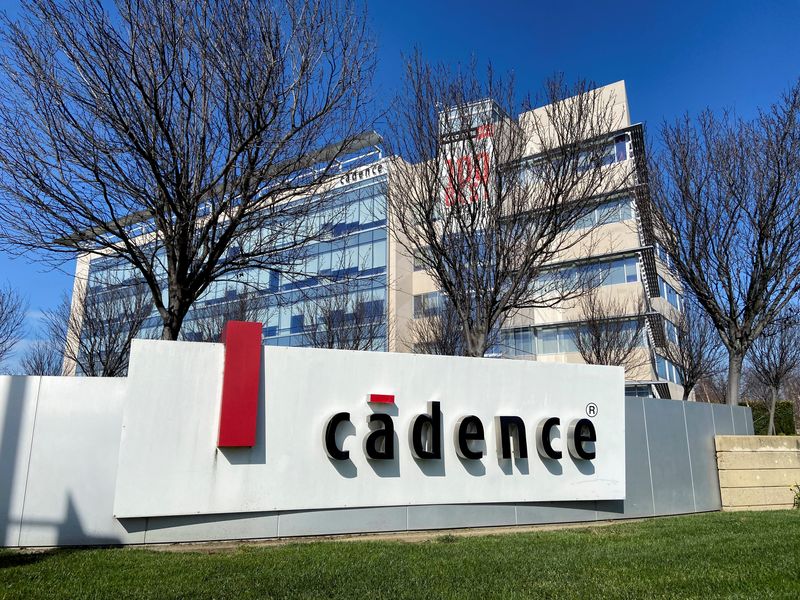By Stephen Nellis and Tanya Jain
(Reuters) -Cadence Design Systems Inc on Monday raised its full-year revenue forecast to slightly above Wall Street estimates, as a surge in artificial intelligence (AI) innovation fueled demand for custom semiconductor design.
Demand for the software used to design chips has risen even amid a cyclical downturn for the industry as chipmakers and tech giants such as Alphabet (NASDAQ:GOOGL) and Nvidia (NASDAQ:NVDA) Corp rush to create their own semiconductors needed for AI processing.
But Cadence's current-quarter forecast had a midpoint slightly below analyst estimates, sending shares down 4.4% at $230.60 in after-hours trading.
"Similar to last quarter, shares have performed well into the results and backlog is down modestly (down $100M). I think it's just a little sell the news action after market," Stifel analyst Ruben Roy told Reuters in an email.
Cadence also sells hardware systems that run its chip design software, and Chief Executive Anirudh Devgan told Reuters in an interview the current-quarter forecast is lower than it might otherwise be because "some hardware deliveries are at the border in September and October."
He said the company is "being extra conservative" by forecasting those orders for the fourth quarter.
Cadence forecast full-year revenue between $4.05 billion and $4.09 billion, largely above analysts' average estimate of $4.06 billion, according to Refinitiv data. The company's earlier estimate was for $4.03 billion to $4.07 billion.
It expects adjusted earnings per share for 2023 between $5.05 and $5.11, beating expectations of $5.03 per share.
Revenue was $976.6 million for the quarter ended June 30, above estimates of $974.9 million. But Cadence gave a revenue forecast range of $990 million to $1.01 billion for the current quarter, with the midpoint of $1.0 billion falling slightly below Refinitiv estimates of $1.01 billion.

Like its rival Synopsys (NASDAQ:SNPS) Inc, Cadence is hoping to benefit from AI in at least two ways: first, by providing tools to design chips for AI; and second, by adding AI into its own software to help in the complex process of designing chips.
"This is going to take some time, which is part of the natural process of trying and deploying" new technologies, Devgan told analysts on a conference call.